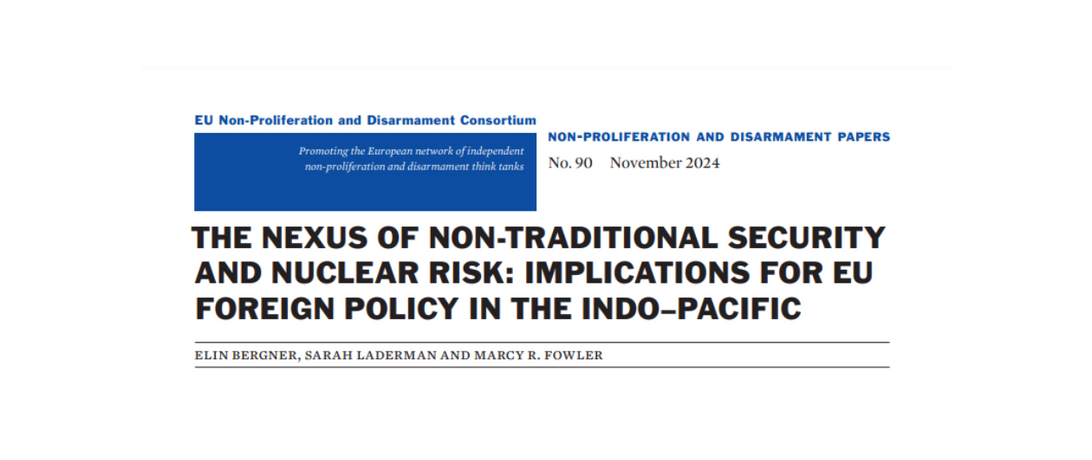
The updated European Union (EU) Indo–Pacific Strategy highlights the growing strategic importance of the region for the EU’s foreign policy goals, incorporating both traditional security matters and non-traditional security (NTS) concerns. However, the strategy falls short by siloing policy implementation and not addressing the significant nuclear escalation risks among the region’s nuclear-armed states, which could have severe global consequences, including for Europe. NTS and nuclear risks intersect in complex ways, with NTS as a driver of conflict remaining underexplored despite increasing evidence of causal linkages. In the particular context of the Indo–Pacific, such domestic and interstate conflict holds the potential to escalate to a nuclear dimension due to the intersection of various historical, political and socio-economic factors. This paper aims to address this gap by proposing that the EU should incorporate NTS-focused risk reduction measures into its Indo–Pacific Strategy, alongside traditional nuclear risk reduction efforts. Additionally, the paper suggests enhancing coordination between EU bodies to develop a more integrated approach to comprehensive security in the region.